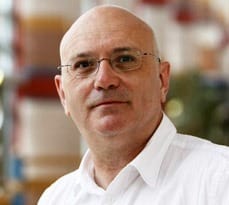Making a difference to society is a noble aim, and leaders shouldn’t be put off by a few bumps along the way, says Dr Neil Stott, Chief Executive of Keystone Development Trust and Executive Director of the Centre for Social Innovation at Cambridge Judge Business School.


If my experience in social innovation has taught me anything, it’s that making social change is not for the faint-hearted. Making a difference and achieving change requires stamina and resilience as well as passion and motivation. It’s often a marathon rather than a sprint, a marathon in which the route is not planned, has unexpected twists and turns as well as dead ends. The trials and tribulations of the journey are as equally important to understand as any positive outcomes.
Take the issue of poverty. At a recent conference, Poverty: Community Solutions, hosted by CJBS and Locality (a network of community-led organisations), participants discussed the frustrations involved in efforts to break the cycle of multiple generations of poverty. To paraphrase the German sociologist Ulrich Beck, there was a lot of despair mixed up in the hope.
Part of the concern was the sheer weight of expectations laid at the door of community and social organisations, as distressed people turn to them for assistance in light of the impact of austerity on retreating state welfare. It was also noted that the state – for pecuniary or ideological reasons – increasingly encourages communities to provide their own solutions through social innovation.
One common feature in all this is that any accounts of social innovation and entrepreneurship invariably focus on heroic organisations, almost messianic leadership and headline-making successes (though an account of organisational failure from CJBS’s Professor Paul Tracey and colleagues is a notable exception). Social heroes are often credited with shaman-like powers to conjure socially valuable innovations, and assume the status of thought leaders.
To an extent this is understandable: new kids on the block may prefer to put their best face forward to garner legitimacy and resources, but in doing so they may be doing beneficiaries, new generations of social innovators and themselves a disservice. While many would subscribe to the adage that one learns more from failure than success; few like to open up their failures to scrutiny.
Leaders, then, are expected to provide certainty, yet I would suggest that on the road to making social change doubt may actually be a strength. Doubt can protect individuals and organisations from complacency, hubris or becoming a “self-licking lollipop” – one that perpetuates itself for internal, rather than external benefit.
And one final thought: in the 1960s the anti-poverty initiative led by the Community Development Projects (CDP) programme annoyed the Labour government of the time by concluding that the causes of poverty and disadvantage occurred outside poor communities, was structural and not easily rectified by local action alone. Recounting the story to a development trust colleague and how it resonated with my experience, she gave me a baleful look. “True,” she said, “but if we don’t do something who will? Action, even it feels like shifting chairs, is better than inaction if it makes a difference to someone’s life.”
Dr Neil Stott is Executive Director of the Centre for Social Innovation. Its primary focus is to understand, promote, and engage with social innovators and create and support social ventures and projects.
One of the programmes supported by the Centre for Social Innovation is Cambridge Social Ventures – a programme to find, nurture and enable social entrepreneurs to get started and grow.

